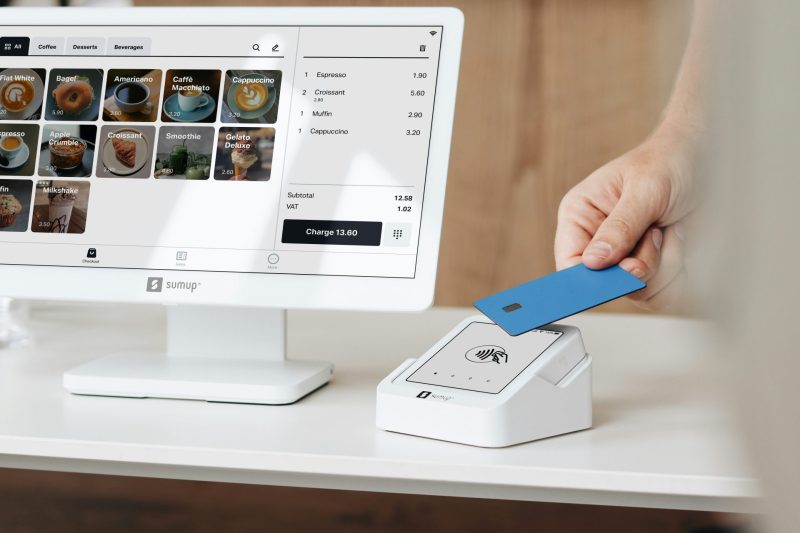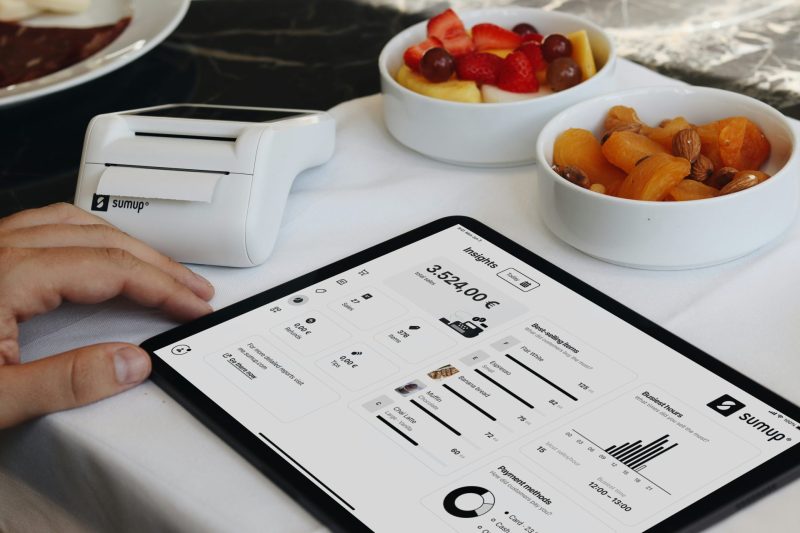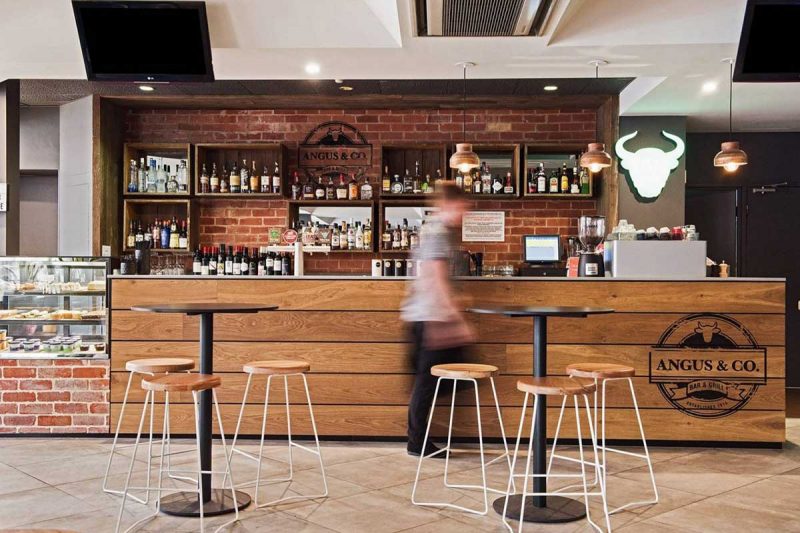7 Steps to Improve Hotel Profitability Through Cost Control
Running a hotel can be incredibly rewarding, but keeping costs under control is what makes the difference between profit and pressure. High labour expenses, supplier markups, and rising maintenance bills can all add up fast. Learn how to keep your costs low and in control, with 1834 Hotels.
Profitability Starts Here
In a business where margins are tight, cost control is where profitability is either made or lost.
But the good news is, it’s not about drastic cuts or complicated systems. One of the first steps to profitability is consistent, proactive management and a clear understanding of where your money goes.
Even small, well-placed improvements can create lasting impact. Reviewing processes, analysing data, and empowering staff can all contribute to meaningful savings and stronger performance. When you know your numbers and act on them, cost control becomes less about limitation and more about growth.
Don’t Just Manage Costs — Master Them
Ready to gain clarity and control of your costs in a way that your general manager cant?
Contact Scott, our Director of Development, to find out how 1834 Hotels can help you.
Email: [email protected]
7 Steps to Increase Profits at Your Hotel With Cost Controls
Here are seven practical ways to reduce expenses and increase profits across your hotel.

1. Get the right systems or software in place
In the hotel industry, profitability starts with knowing your numbers, and that means having the right systems and software to manage them. Accurate, up-to-date data helps you monitor costs, track sales, and make confident financial decisions.
Outdated or inefficient systems can easily lead to missed revenue opportunities and inaccurate reporting. Ensuring your property management system (PMS) and other key tools are equipped for today’s challenges is essential for maintaining control and maximising profitability.
At 1834 Hotels, we use a custom-built business intelligence tool that pulls live data from multiple systems, including PMS and point of sale. The platform provides a real-time summary of revenue and expenses, eliminating manual work, reducing errors, and giving hotel operators a clear picture of performance across daily, weekly, and monthly periods.
Speak to us about our systems and reporting structures here.
2. Monitor your operating costs
Having the right tools in place is only the beginning. The real advantage comes from how you use them. Monitoring your hotel’s operating costs on a consistent basis is essential for maintaining profitability and responding quickly to changes in performance.
Live data systems make this process simple. With access to accurate, up-to-date figures, hotel managers can clearly see where money is being spent and identify trends before they become issues.
At 1834 Hotels, we generate customised daily reports across our portfolio, including details such as cost of goods, revenue streams, and departmental performance. This approach gives every hotel a clear, real-time view of its financial position and supports proactive decision-making.
Daily reporting also creates opportunities, not just insights. By tracking your numbers closely, you can respond faster, adjusting room rates, introducing menu specials, or reallocating resources to meet KPIs. Staying on top of your data isn’t just about control; it’s about uncovering ways to grow revenue and strengthen profitability, day after day.
Speak to us about our systems and reporting structures here.
3. Analyse your numbers to find savings
Small savings might not seem like much today, but over time they can add up to thousands. Analysing your numbers regularly helps you spot these opportunities and turn small adjustments into long-term gains.
When reviewing your expenses, focus on three key areas that have the biggest impact on profitability:
Food & Beverage Operations
Your restaurant, bar, or bistro is a prime area for cost control. Start by reviewing your cost of goods and menu pricing. Does your chef know the true cost of each dish? Have margins been calculated accurately? Even small changes in portion sizes, supplier contracts, or menu design can significantly improve profitability.
Labour Costs
Staff wages are one of your largest expenses, so even minor efficiencies can make a big difference. Analyse rosters carefully and match staffing levels to occupancy patterns. Simple strategies like flexible rostering, upskilling team members, or splitting shifts can reduce costs without compromising service.
Procurement & Group Buying
Review your supplier agreements and take advantage of group purchasing power where possible. Whether it’s bathroom amenities, beverages, insurance, or maintenance supplies, larger contracts often mean better pricing and consistent savings.
Beyond these major areas, there are smaller, ongoing opportunities too, from energy-efficient systems and LED lighting to towel reuse programs and motion sensors. Even underutilised spaces, like foyers or courtyards, can generate revenue through pop-up events or seasonal activations.
Finding savings isn’t just about cutting back; it’s about running your hotel smarter, not smaller.
4. Streamline your food and beverage department
Your hotel’s restaurant, bar, or bottle shop has the potential to be a major profit driver, but without structure and analysis, it can quickly become a financial drain. In most cases, cost of goods and wages are the biggest factors eating into margins, and both can be managed with better data, planning, and communication.
Control Costs and Reduce Waste
Food waste is one of the most common (and costly) issues in hospitality. Too much expirable stock, oversized portions, or leftover food on plates can all quietly destroy profits.
If waste is a recurring issue, start by ordering less stock, reducing portion sizes, or simplifying the menu. Small operational changes like these protect your bottom line without affecting guest satisfaction.
Focus on Profitability, Not Just Creativity
Chefs and managers often prioritise creativity, but profitability starts with understanding the numbers. Costing each dish, analysing menu margins, and tracking performance against KPIs are all essential to running a successful food and beverage operation.
A data-driven approach helps identify which menu items perform best. Often, a smaller, well-structured menu with dishes that sell consistently and profitably is far more effective than a large one.
Use Data to Drive Decisions
Across our portfolio, 1834 Hotels manages around AUD $40 million in annual food and beverage sales. Using business intelligence tools, we analyse menu performance, cost of goods, and wage ratios to help hotel restaurants transform underperforming venues into profitable ones.
With clear insights and consistent tracking, even minor menu or staffing adjustments can have a dramatic impact on performance.
A Proven Model: Angus & Co Bar and Grill
One of our most successful examples is Angus & Co Bar and Grill, a flexible steakhouse concept designed to bring structure and profitability to hotel restaurants. Developed in partnership with a local celebrity chef, the brand offers a ready-to-implement restaurant solution, combining approachable design, strong marketing, and a commercially sound menu structure.
Behind the scenes, Angus & Co delivers a proven model for managing processes, menus, wages, and cost of goods, turning venues from loss-making to thriving. Some properties have reported sales increases of over 200% in a single month.
One South Australian venue, for instance, grew sales by 150% in its first four months, nearly doubling annual revenue compared to the previous year. Another turned its costed Angus & Co menu into a profitable satellite kitchen on Uber Eats, one of the most successful in our group.
Speak with 1834 Hotels about implementing the Angus & Co brand.
5. Focus on a flexible roster with wage controls
Labour is one of a hotel’s biggest expenses, and managing it well is key to profitability. A flexible, data-driven roster helps ensure the right people are working at the right times, without overspending on wages.
At 1834 Hotels, we use a custom-built business intelligence system that compares live sales data against staffing levels. This allows managers to adjust rosters daily instead of waiting for end-of-month reports. Small, timely changes like these can make all the difference to your bottom line.
Of course, wage control isn’t just about numbers, it’s about people. Cross-training staff keeps teams motivated, reduces idle hours, and builds flexibility during quieter periods.
Automation also plays a big role. An automated wage control system removes manual data entry and payroll errors, ensuring staff are paid correctly and compliance is maintained. Digital tools that track expenses by role and record attendance accurately save time, improve oversight, and give managers more space to focus on guests.
The result: happier staff, better efficiency, and stronger profit margins.
6. Consider smarter procurement and management of goods
Strong hotel management depends on having clear systems in place, and that includes how you purchase and manage goods. A structured approach to procurement helps keep costs predictable, reduces waste, and supports consistent profitability.
Start by strengthening your purchasing processes. Clear approval parameters, transparent invoicing, and cloud-based storage make it easier to see where money is going.
At 1834 Hotels, we use an online approval system that tracks every invoice in real time. This allows us to confirm that each purchase is necessary, within budget, and aligned with overall profitability goals.
Smarter procurement also means taking advantage of group buying power. Through the 1834 Hotels network, our managed properties benefit from preferred supplier agreements and national pricing across key categories such as food and beverage, cleaning supplies, maintenance, and insurance. By negotiating collectively, each hotel can access better rates, reduce costs, and improve margins without compromising on quality.
Speak to us about our group buying power here.
7. Keep reviewing and refining
Cost control isn’t a one-time project, it’s an ongoing process. Once your systems are in place and your departments are running efficiently, the real work begins: monitoring performance and making consistent, informed adjustments.
Review your automated reports regularly to spot new opportunities or potential issues before they escalate. Small, timely changes, whether in staffing, procurement, or operations, can have a big cumulative impact on profitability.
Expense management takes attention and consistency, but the reward is lasting stability and stronger returns. When you stay close to the numbers, your business stays on track.
Need Help Getting Your Costs Under Control?
If you’re ready to improve profitability and take greater control of your hotel’s expenses, we can help.
At 1834 Hotels, we specialise in delivering cost and expense visibility, financial analysis, and strategic management across every department of your business. Our systems provide live data, daily reporting, and on-the-ground support for general managers, helping hotels make smarter, faster, profit-focused decisions.
Every property is different, which is why our services are flexible and fully customisable to your location, scale, and operational needs.
Wherever you’re based in Australia or the Pacific, we can help you identify savings, strengthen performance, and achieve long-term profitability.
Stop relying on guesswork; achieve a level of cost control your GM can’t.
Ready to gain clarity and control? Contact Scott, our Director of Development, to learn more.
Email: [email protected]







